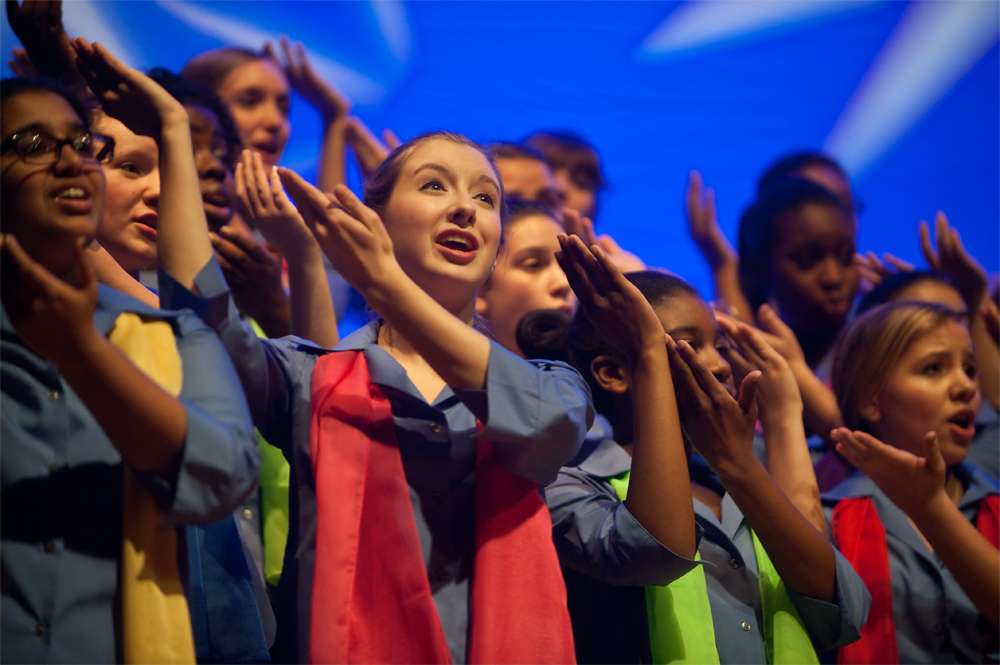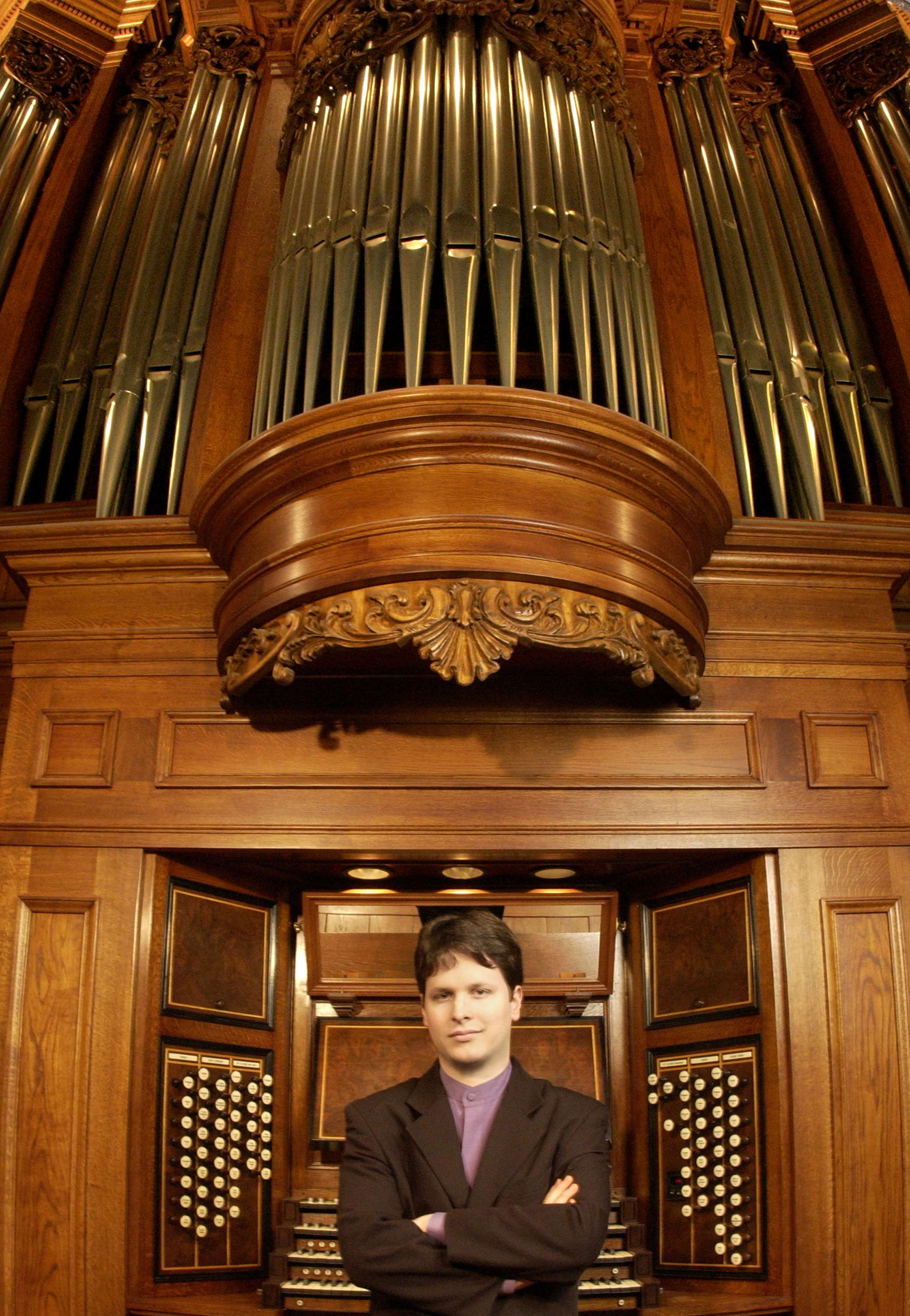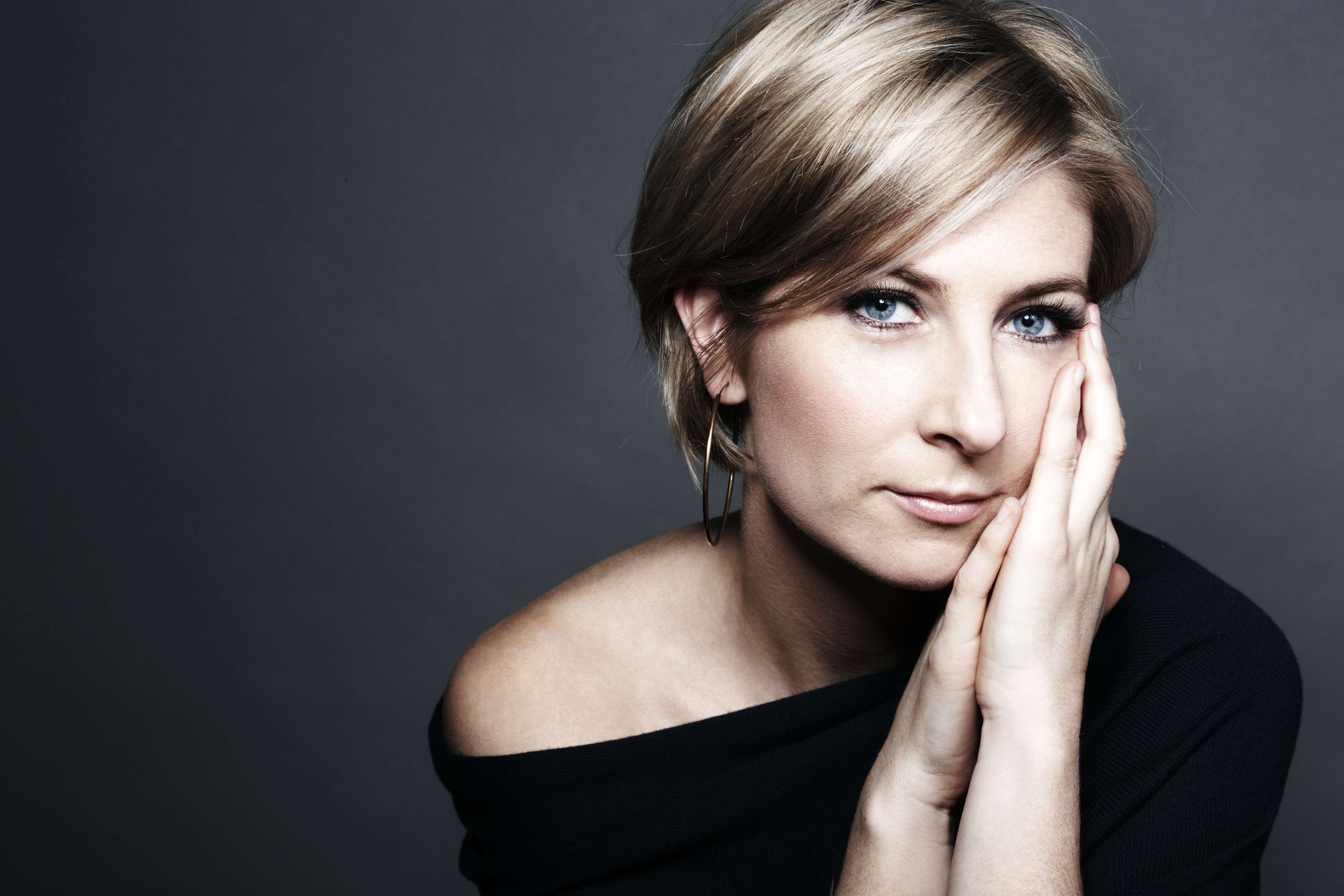|
Back
The “Soprano-Torturer” And Other Exotica New York
Zankel Hall, Carnegie Hall
03/29/2012 -
Harry Partch: Daphne of the Dunes
Mason Bates: Mass Transmission (NY Premiere)
David Del Tredici: Sygyzy
Lou Harrison: Concerto for Organ with Percussion Orchestra
Kiera Duffy (Soprano), Paul Jacobs (Organ), Mason Bates (Electronica)
Newband, Young People’s Chorus of New York, Deon Drummond and Stefani Starin (Directors), Francisco J. Núnez (Artistic Director), Members of the San Francisco Orchestra, Donato Cabrera (Conductor), Michael Tilson Thomas (Conductor and Host)

A few “Young People’s” Choristers” (© Courtesy of the Artists)
Attending any of the Michael Tilson Thomas “American Maverick” concerts this week is like taking a torch lit tour through the subterranean vaults of a legendary sultan. The darkness glows with eccentric instruments (not of torture but of sounds), cosmic colors, merging of the most precious musical stones in exotic landscapes.
Okay, one should block the outlandish metaphors. But words are ineffective compared to the music. Last night, the two live and two dead composers had music which could have been written yesterday. And almost certainly would had to have been written on the Pacific Coast.
This is the coast facing Asia. Three of the pieces had Asia either as setting of influence. Bur rarely did they have the ersatz (if inspired) imitations of a Debussy or Britten, each standing on their own.
The most complex concept–and most astonishing result–was Mass Transmission by Mason Bates, augmenting his music with his own sounds from the electronica. The ideas were words spoken in the early 20th Century by Dutch mothers to their civil servant children in the colony of Java in the Dutch East Indies. The background sounds were the static and whistling sounds from the radio transmissions. But these were the settings for the indescriable choral music sung by the Young People’s Chorus of New York.
It was difficult to believe that this fascinating group were “young” due to their mastery of this most difficult choral music. It ranged from Penderecki-like tone clusters to the lush Vaughan Williams-style harmonies. But in terms of the words, those nervous words of parents to children, it all made sense. So did the solo of a girl in Indonesia, sung by an unnamed soloist from the first balcony. It was more than touching, it was telling and sympathetic. With the electronica sounds, and splendid conducting by Donato Cabrera, Mr. Bates presented a human history in a modern setting.

P. Jacobs (© Stefan Cohen)
Adding to this was the organ music played by Paul Jacobs, one of the leading instrumentalists of our day.
Mr. Jacobs was also the star of Lou Harrison’s Concerto For Organ and Percussion. The composer did use a few cheesy Asian scales in the first movement, but the remainder of the six-movement work had an outlandish sound of outlandish instruments–drums and gongs and tubular gongs and piano–ending in an aural whirligig.
Harrison said that his jazzy final movement was based on the finale of César Franck’s D Minor Symphony, but this was either well concealed or a joke from Mr. Harrison. We shall never know.
The opening composer is never played in New York–because the instruments had been mainly invented by the composer, Harry Partch, in his own garage. He did work with microtonal music, but was best known for the “Quadranglaris Reversium”, the “Marimba Eroica” the “Blowboy” and the “Boo.”
With names like these, who the hell needs music?
More important, while East Coast composers of the 1950’s were finagling with atonality, equations and Teutonic-serious metaphysics, writers like Partch and Harrison and Cowell and Cage were actually having fun.
As was this fun work, Daphne of the Dunes, played with a variety of percussive inventions.

K. Duffy (© Stephen Laxton/Columbia Artists Management)
On to David Del Tredici. He may be from the Midwest, but his music breathes the openness and eccentricity of the West Coast.
My dog, oblivious to most music, becomes ecstatically happy when I play Mr. Del Tredici’s Alice, growling in high pitch, ears and tail wagging, the picture of joy.
Probably the composer’s 40-year-old Sygyzy would have the same effect, since the soloist (of what a friend titles “The Soprano-Torturer”) yelps and whoops and sings at the most extreme range, for the two settings of two James Joyce poems. The composer was working with tone rows at that time, and so enjoying the work uninhibitedly was blocked since we had to “spot the transmutations” at times. But Ms. Duffy is one of those sopranos who seems born to the work. With her partner, French horn soloist Nicole Cash, it was still a joy.
As to conductor Michael Tilson Thomas, he reflected in every beat, and every exuberance of his West Coast mavericks.
Harry Rolnick
|